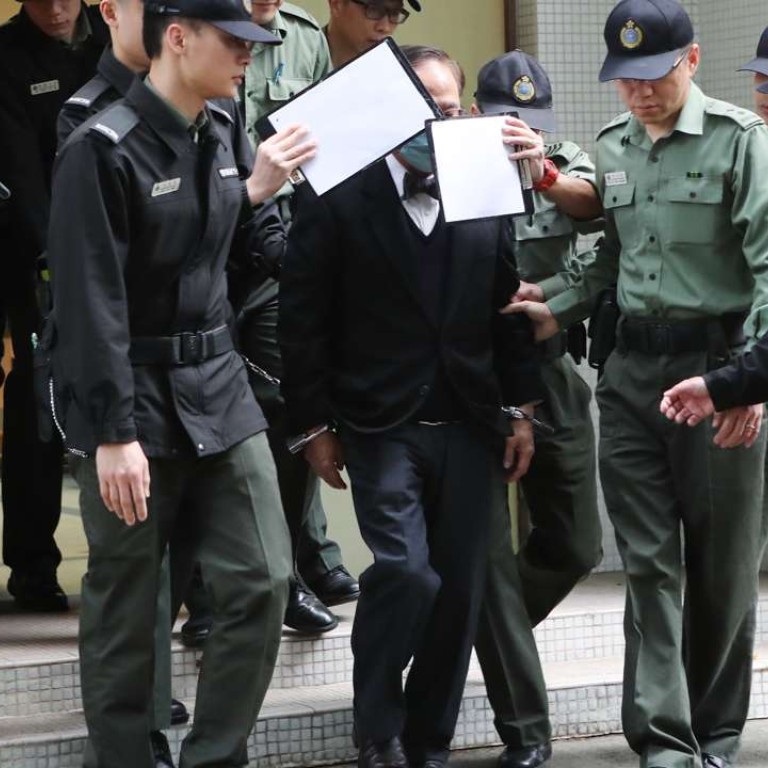
‘Devout’ Donald Tsang paying for his own sins
The spectacular fall from grace of Donald Tsang, who portrayed himself as a devout Catholic, marks a high point for Hong Kong law
Sir Donald Tsang’s conviction and imprisonment for misconduct in public office marks a new low point in Hong Kong’s steadily decomposing civil society. That the rule of law remains intact, and that this venal man should finally be held accountable for his serial misdeeds, is the only positive side to this drawn-out, shabby saga.
Aside from disgracing his official position, Tsang’s pious insincerity should revolt any decent person. Affectedly parading his churchgoing Catholic persona, Tsang ostentatiously planned his official schedule around well-publicised attendances at daily Mass; presumably, as he muttered the responses and fingered his rosary, the hypocrite also schemed towards his next peculation. Clearly the Jesuit fathers at Wah Yan College, which Tsang attended, insufficiently catechised him, for so little basic sense of right and wrong to have developed.

In the minds of many Catholics – and other Christians – public adherence to their creed somehow qualifies them for special pleading when eventually caught out in wrongdoing. Various mitigation letters offered to the court made this belief abundantly clear. But surely, as a “devout Catholic”, as well as Hong Kong’s former top official, even higher standards must prevail for Tsang, rather than have further excuses made for him. All-but “elected” future chief executive Carrie Lam Cheng Yuet-ngor – also an ardent co-religionist – even described her former boss as her “role model”; let’s sincerely hope this is not the case!

Reasonable inference would suggest that Tsang’s conviction has further exposed the arrogant, carelessly displayed tip of Hong Kong’s much larger and more serious corruption/collusion iceberg. His tycoon enablers, their bagmen (and women) and certain curiously coincidental decisions made when he was chief secretary and chief executive, which materially benefitted certain local plutocrats, as well as the wider “House of Tsang”, could do with far closer examination than they have hitherto received.

